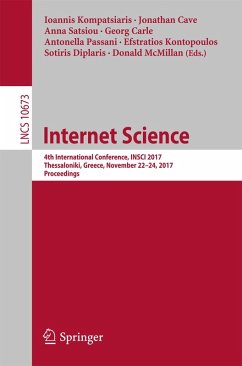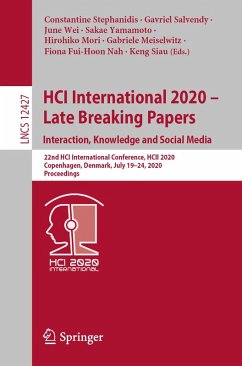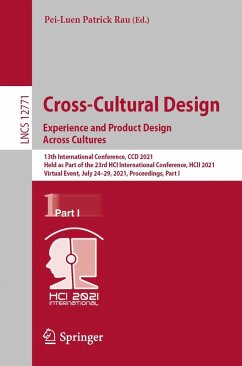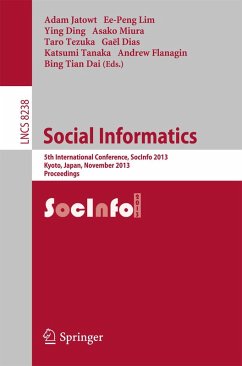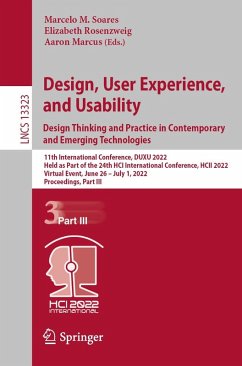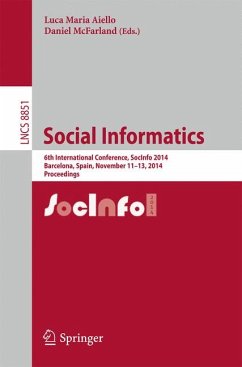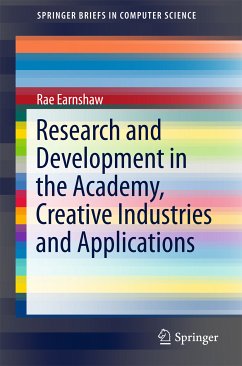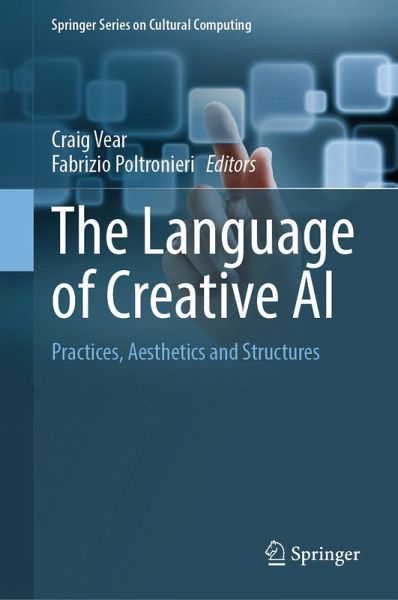
The Language of Creative AI (eBook, PDF)
Practices, Aesthetics and Structures
Redaktion: Vear, Craig; Poltronieri, Fabrizio
Versandkostenfrei!
Sofort per Download lieferbar
128,95 €
inkl. MwSt.
Weitere Ausgaben:

PAYBACK Punkte
64 °P sammeln!
Creative AI defines art and media practices that have AI embedded into the process of creation, but also encompass novel AI approaches in the realisation and experience of such work, e.g. robotic art, distributed AI artworks across locations, AI performers, artificial musicians, synthetic images generated by neural networks, AI authors and journalist bots.This book builds on the discourse of AI and creativity and extends the notion of embedded and co-operative creativity with intelligent software. It does so through a human-centred approach in which AI is empowered to make the human experience...
Creative AI defines art and media practices that have AI embedded into the process of creation, but also encompass novel AI approaches in the realisation and experience of such work, e.g. robotic art, distributed AI artworks across locations, AI performers, artificial musicians, synthetic images generated by neural networks, AI authors and journalist bots.
This book builds on the discourse of AI and creativity and extends the notion of embedded and co-operative creativity with intelligent software. It does so through a human-centred approach in which AI is empowered to make the human experience more creative. It presents ways-of-thinking and doing by the creators themselves so as to add to the ongoing discussion of AI and creativity at a time when the field needs to expand its thinking. This will avoid over-academization of this emerging field, and help counter engrained prejudice and bias. The Language of Creative AI contains technical descriptions, theoretical frameworks, philosophical concepts and practice-based case studies. It is a compendium of thinking around creative AI for technologists, human-computer interaction researchers and artists who are wishing to explore the creative potential of AI.
This book builds on the discourse of AI and creativity and extends the notion of embedded and co-operative creativity with intelligent software. It does so through a human-centred approach in which AI is empowered to make the human experience more creative. It presents ways-of-thinking and doing by the creators themselves so as to add to the ongoing discussion of AI and creativity at a time when the field needs to expand its thinking. This will avoid over-academization of this emerging field, and help counter engrained prejudice and bias. The Language of Creative AI contains technical descriptions, theoretical frameworks, philosophical concepts and practice-based case studies. It is a compendium of thinking around creative AI for technologists, human-computer interaction researchers and artists who are wishing to explore the creative potential of AI.
Dieser Download kann aus rechtlichen Gründen nur mit Rechnungsadresse in A, B, BG, CY, CZ, D, DK, EW, E, FIN, F, GR, HR, H, IRL, I, LT, L, LR, M, NL, PL, P, R, S, SLO, SK ausgeliefert werden.






